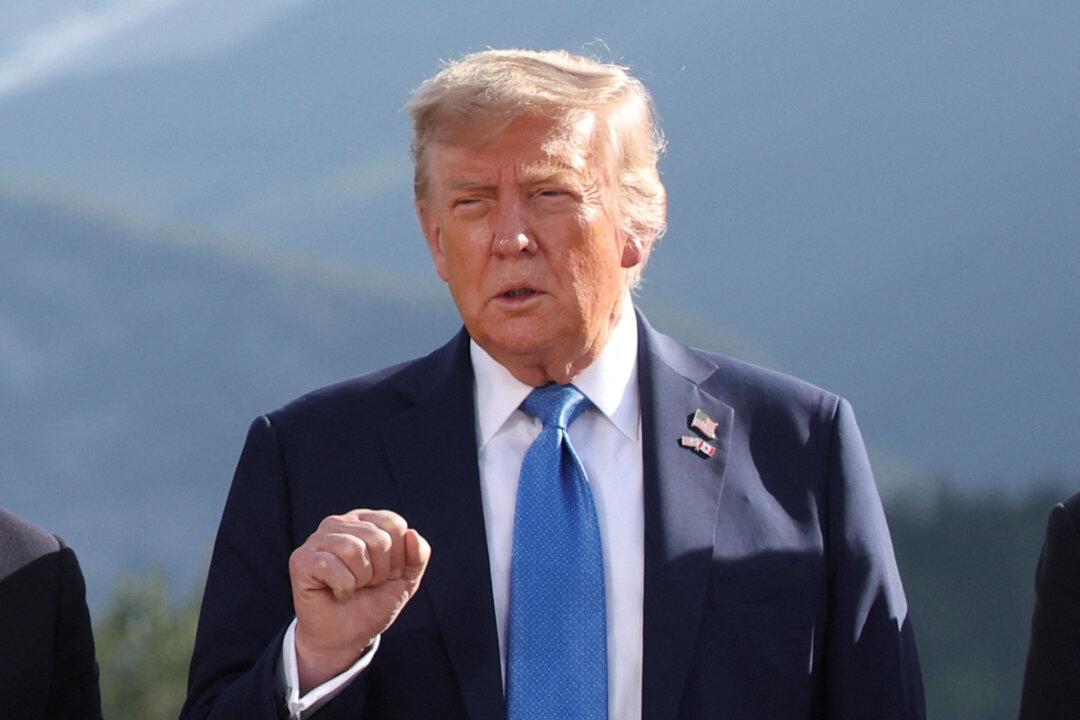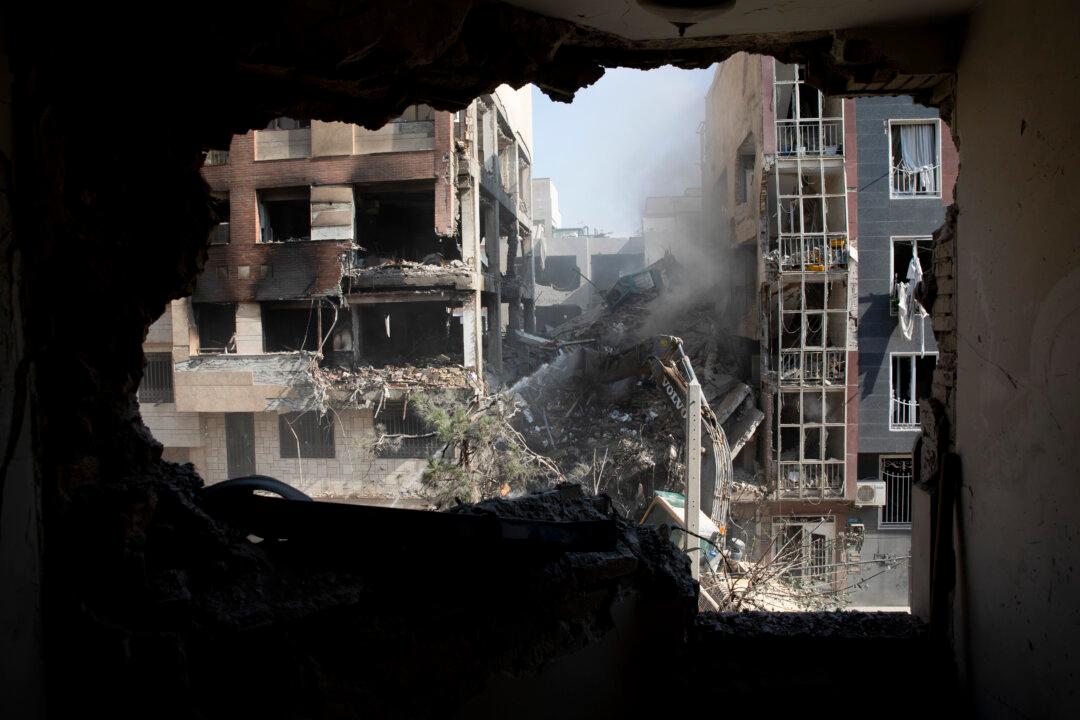NATO Secretary-General Mark Rutte on Friday called for de-escalation in the Middle East after Israel launched airstrikes on Iran.
Rutte, during a joint press conference in Stockholm with Swedish Prime Minister Ulf Kristersson,
said, “It think it is now crucial for many allies, including the United States, to work, as we speak, to de-escalate. I know that they are doing that and I think that is now the first order of the day.”
Israel launched a series of air strikes on key targets in Iran, only hours after the International Atomic Energy Agency’s 35-nation board of governors passed a
resolution on June 12 declaring Iran
noncompliant and in breach of its obligations under the Nuclear Nonproliferation Treaty.
In an apparent reference to Iran’s nuclear weapons program, Israeli Prime Minister Benjamin Netanyahu said in a June 13 statement
posted to social media: “Moments ago, Israel launched Operation ‘Rising Lion’, a targeted military operation to roll back the Iranian threat to Israel’s very survival. This operation will continue for as many days as it takes to remove this threat.”
Iranian Supreme Leader Ayatollah Ali Khamenei said on Friday that Israel would face severe punishment, as the state-run
IRNA news agency confirmed that both the commander of the Iranian Armed Forces, Maj. Gen. Mohammad Bagheri, and the head of the Islamic Revolutionary Guard Corps (IRGC), Maj. Gen. Hossein Salami, had been killed in the strikes.
IAEA Director General Rafael Grossi
wrote on social media platform X: “The IAEA is closely monitoring the deeply concerning situation in Iran. Agency can confirm Natanz site among targets. The Agency is in contact with Iranian authorities regarding radiation levels. We are also in contact with our inspectors in the country.”
The Russian Foreign Ministry condemned the strikes.
“We strongly condemn the use of force by the state of Israel in violation of the Charter of the United Nations and international law. Unprovoked military strikes against a sovereign U.N. member state, its citizens, peaceful cities, and nuclear energy infrastructure are categorically unacceptable,” the ministry said.
“The international community cannot afford to be indifferent to such atrocities, which destroy peace and damage regional and international security.”
Chinese Foreign Ministry spokesman Lin Jian told a press briefing on Friday, “China opposes any infringement upon Iran’s sovereignty, security and territorial integrity, and opposes any escalation of tensions and expansion of conflicts. A sudden rise in regional tensions is not in the interests of any party.”
On Thursday evening, U.S. Secretary of State Marco Rubio said in a statement
posted on X: “Tonight, Israel took unilateral action against Iran. We are not involved in strikes against Iran and our top priority is protecting American forces in the region.”
Rubio said Israel advised the United States “that they believe this action was necessary for its self-defense.”
“Let me be clear: Iran should not target U.S. interests or personnel,” he added.
Iran and the United States were trying to negotiate a new deal to replace the 2015 Joint Comprehensive Plan of Action (JCPOA), with a sixth round of negotiations due to take place in Muscat, the capital of Oman, on June 15.
On Friday, The Times of Oman
said Iran had withdrawn from Sunday’s meeting, and the talks had been suspended indefinitely.
The Epoch Times is unable to verify that announcement.
On May 28, U.S. President Donald Trump said he had told Netanyahu not to take any action that might disrupt the U.S.–Iran nuclear program talks.
On
June 11, the U.S. State Department warned of a heightened security risk in the Middle East and began reducing the number of staff at embassies in the region.
Following the Israeli strikes, world leaders called for a de-escalation of tensions in the Middle East.
“The reports of these strikes are concerning and we urge all parties to step back and reduce tensions urgently. Escalation serves no one in the region,” British Prime Minister Keir Starmer
said. “Now is the time for restraint, calm and a return to diplomacy.”
In a social media
post, the Saudi Foreign Ministry said, “The Kingdom of Saudi Arabia expresses its strong condemnation and denunciation of the blatant Israeli aggressions against the brotherly Islamic Republic of Iran, which undermine its sovereignty and security and constitute a clear violation of international laws and norms.”
Australian Foreign Minister Penny Wong said: “This risks further destabilising a region that is already volatile. We call on all parties to refrain from actions and rhetoric that will further exacerbate tensions.”
Anthony Cowden, a former U.S. Navy captain and managing director at Stari Consulting Services, told The Epoch Times that Iran had fired drones on Friday, in what he called a “haphazard, knee-jerk response.”
“If this conflict escalates, watch for a coordinated attack by Iran—by that I mean a concentrated, time-on-target attack with an overwhelming number of weapon systems [drones, ballistic missiles, etc.] against a limited number of targets,” Cowden said.
“Any integrated air defense system can be overwhelmed if you shoot enough things at it at the same time.”
The Associated Press and Reuters contributed to this report.







